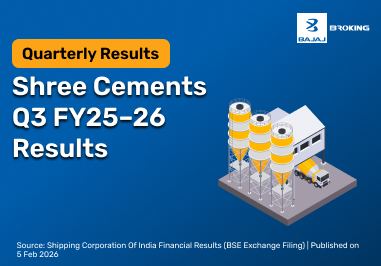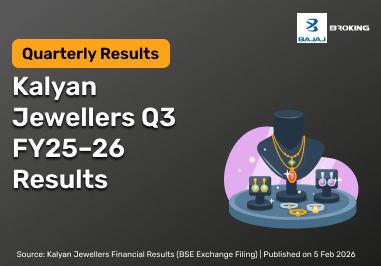In this blog, we will delve into what NSE is and understand the role it plays in India’s financial system and its effect on the country’s economic structure.
What Is the National Stock Exchange of India (NSE)?
NSE full form in share market stands for National Stock Exchange. It is a premier financial marketplace headquartered in Mumbai. Launched in 1992, it was India’s first exchange to introduce fully automated electronic trading. This move brought speed, efficiency, and transparency to the Indian capital market. NSE provides a platform for trading in a wide range of instruments including equities, futures, options, bonds, and currency derivatives. Its benchmark index, NIFTY 50, is widely tracked by investors and fund managers as a barometer of market performance.
Beyond just trading, NSE plays a crucial role in shaping India’s financial infrastructure. It supports investor education, promotes financial literacy, and sets high regulatory standards for listed companies. The exchange also drives liquidity in the market, helping businesses raise capital efficiently. For Indian investors, NSE not only enables participation in the country’s economic growth but also offers tools and data for informed decision-making in a highly regulated environment.
NSE stands for National Stock Exchange. Based out of Mumbai, it is one of India’s leading stock exchanges that provides a transparent and efficient platform for trading equities, derivatives, currencies, and more. Established in 1992, NSE revolutionised the Indian financial market with electronic trading, ensuring speed, accessibility, and fair pricing for investors.
Additional Read: NSE Vs. BSE
Functions of National Stock Exchange of India (NSE)
- Market Creation: NSE provides a platform for the issuance and trading of various financial instruments including stocks, bonds, and other securities.
- Facilitating Transactions: The exchange efficiently facilitates buy and sell orders from investors, ensuring fair and transparent dealings.
- Price Determination: Through the constant push and pull of supply and demand, the NSE helps in determining the real-time prices of securities.
- Investor Services: It offers services like trade settlement, risk management, education, and provides market data to investors and other stakeholders.
- Market Surveillance: The NSE has a robust system in place to monitor trades and ensure compliance with regulations to prevent market manipulation and fraud.
Additional Read: Nifty 50: Premier Stock Market Index
Features of National Stock Exchange of India (NSE)
- Nationwide Reach: NSE was the first exchange in India to provide a nationwide trading platform where investors from across the country can trade.
- Electronic Trading: The NSE introduced an electronic or screen-based trading system that replaced traditional floor trading, ensuring more efficiency.
- NSE Indices: It hosts various indices like NIFTY 50, which gives a snapshot of the market performance by tracking the share prices of 50 major companies.
- Technology-Driven: With state-of-the-art technology, NSE provides a seamless trading experience with high-speed transactions and robust security.
- Diverse Product Offerings: The exchange offers trading in products across equities, derivatives, debt, and currency.
Additional Read: Understanding the Sensex
Market Segments of the National Stock Exchange
The NSE operates through specialised segments to cater to different financial instruments and investor needs. Two of its primary market divisions are explained below:
Equities
At the heart of NSE lies the equity segment. This is the dynamic hub where shares of listed companies are actively traded. Investors from various walks of life engage here, aiming to gain from the profits of the companies.
Derivatives
This segment adds a layer of sophistication to NSE’s offerings. Derivatives are financial instruments deriving their value from underlying assets like stocks or indices. Traders here engage in futures and options, often to hedge risks or speculate on future price movements.
Debt
It’s the quieter side of the NSE, focused on debt instruments such as bonds and debentures. This segment attracts investors looking for stable income and lower risk compared to equities.
Currency
This dynamic segment involves trading in currency derivatives. Investors trade in futures and options of currency pairs, betting on the movements in foreign exchange rates.
Exchange-Traded Funds (ETFs) and Mutual Funds
These are popular for their lower costs and simplicity in diversification.
Wholesale Debt Market Segment
This division of NSE enables high-value trading in fixed-income instruments, primarily for institutional investors such as banks, mutual funds, and insurance firms. The segment includes securities like government bonds, treasury bills, corporate bonds, certificates of deposit, and commercial papers.
It supports long-term capital needs and allows large institutions to manage liquidity effectively. By providing a regulated and efficient platform, the WDM segment ensures transparency in India’s debt market while also aiding government borrowing and monetary operations.
Capital Market Segment
This segment facilitates the trading of equity shares, preference shares, debentures, exchange-traded funds (ETFs), and sovereign gold bonds. It is open to both individual and institutional investors, serving as the core space for raising and investing capital.
Through this platform, investors can engage in real-time trading and benefit from accurate price discovery. It helps businesses raise equity and allows investors to diversify their portfolios with a wide range of listed financial instruments.
How Does the NSE Stock Exchange Work?
The NSE operates on a modern electronic system that enables trading without the need for physical presence. When you, as an investor, want to buy or sell shares, your broker carries out the transaction on the NSE platform. The prices of stocks move based on demand and supply dynamics, and the trading system matches buy and sell orders based on price and time priority. Every transaction is transparent and immediately reflected in the system. Post-trading, the settlement process ensures the transfer of securities and funds between the buyer and seller.
Benchmark Index of NSE
The National Stock Exchange (NSE) plays a crucial role in the Indian financial market, with the Nifty 50 serving as its benchmark index. This index includes 50 of the most actively traded stocks on the NSE, providing a comprehensive representation of the overall market performance. The National Stock Exchange index is essential for investors, offering insights into the economic health and trends of various sectors within the Indian market. The Nifty 50 encompasses companies from multiple industries, allowing for a diversified view of the stock exchange's dynamics.
Understanding the NSE full form, which stands for the National Stock Exchange of India, is vital for both novice and seasoned investors. The NSE was established to modernize the country's trading infrastructure and promote transparent financial practices. As a result, the Nifty 50 index is widely used by investors for portfolio management and risk assessment. By tracking the performance of these 50 stocks, investors can make informed decisions based on market fluctuations, thus enhancing their investment strategies in the evolving landscape of Indian finance.
Benefits of Listing with the National Stock Exchange of India
- Enhanced Visibility: Companies listed on the NSE enjoy better visibility and credibility among investors.
- Liquidity: Listing on the NSE ensures companies gain access to a large pool of capital, improving the liquidity of their shares.
- Investor Reach: A listing on the NSE opens the door to a vast network of domestic and international investors.
- Better Valuation: Companies often get better valuations due to improved transparency and governance standards.
- Capital Access: The NSE provides an efficient platform for companies to raise capital through public offerings.
Major Indices in the NSE Exchange System
- NIFTY 50: The flagship index, representing the weighted average of 50 of the largest Indian companies on the NSE.
- NIFTY Next 50: Constitutes the next 50 companies following the NIFTY 50.
- NIFTY Midcap 100: Focuses on the midcap segment, covering the average of 100 mid-sized companies.
- NIFTY Bank: An index composed predominantly of banking stocks listed on the NSE.
- NIFTY IT: Represents the information technology sector, including top Indian companies in the IT services field.
Investment Segments
The national stock exchange offers diverse investment segments that cater to various investor needs. These segments include equity, equity derivatives, and debt, providing market participants with multiple financial instruments for trading and investment. Through these investment avenues, the national stock exchange ensures liquidity, price discovery, and efficient capital allocation in the financial market.
Equity
The national stock exchange provides a robust platform for equity trading, allowing investors to buy and sell shares of publicly listed companies. This segment enables companies to raise capital while offering investors opportunities to participate in a company's growth. The national stock exchange follows an order-driven market structure that ensures transparency and efficiency in trading. Investors can engage in direct equity investments or diversify through instruments like mutual funds, exchange-traded funds (ETFs), and initial public offerings (IPOs).
Equity Derivatives
The national stock exchange facilitates equity derivatives trading, including futures and options contracts on indices and individual stocks. These instruments help investors hedge risks, engage in speculative trading, and implement arbitrage strategies. The national stock exchange was the first in India to introduce index futures in 2000, followed by stock futures and options. With contracts on global indices such as Dow Jones and S&P 500, the national stock exchange has strengthened its position in the global derivatives market.
Debt
The national stock exchange also provides a platform for debt securities trading, offering government bonds, corporate bonds, and other fixed-income instruments. This segment attracts risk-averse investors seeking stable returns. The national stock exchange launched India’s first electronic debt trading platform in 2013, ensuring greater transparency and liquidity. Institutional and retail investors use this segment to invest in long-term and short-term fixed-income assets, making the national stock exchange a key player in India's bond market.
Top 10 Companies Listed Under This Stock Exchange According to Market Capitalisation
Company Name
| Market Capitalisation (in Rs. Crore - approx numbers)
|
Reliance
| 1,572,897
|
TCS
| 1,194,095
|
HDFC
| 925,371
|
Infosys
| 590,454
|
Kotak Mahindra
| 350,014
|
ICICI Bank
| 606,433
|
Bajaj Finance
| 352,243
|
SBI
| 469,702
|
Larsen
| 324,624
|
Axis Bank
| 260,734
|
With these listed companies and more, the National Stock Exchange of India (NSE) provides a platform that supports efficient trading and high liquidity, ensuring investors access to accurate and competitive pricing across a wide spectrum of assets.















